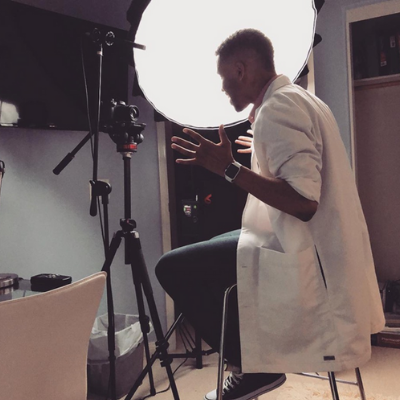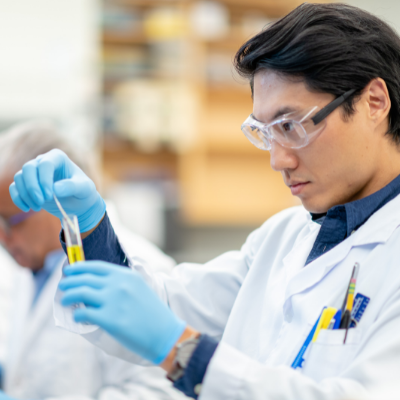Pharmacy Careers
Find your place and your career
Pharmacy is an evolving field, which means that pharmacists are stepping out from behind the counter to make a difference in hospitals, clinics, the pharmaceutical industry and in growing roles at community pharmacies and beyond. Now, pharmacists have more clinical training and are becoming integral members of patient care teams in a variety of healthcare settings. Are you a Colorado high school or college student interested in shadowing a pharmacist? Please email [email protected] for more information!
Career Pathways
Pharmacists provide care to patients in clinical settings in many of the same ways that medical doctors and nurses do. Pharmacists now have active roles in clinics, hospitals and even home care.
Learn more about how pharmacists make an impact in top-tier clinical settings:
Pharmacists have active roles in hospitals, in addition to dispensing medications and managing a complex supply chain, hospital pharmacist working alongside doctors and other healthcare providers as members of medication management teams. Doctors and nurses rely on pharmacists as the medication experts keeping up to date on cutting edge medications and drug therapies.
Learn more about our pharmacists who care for patients in hospital settings and on pandemic front lines.
Community pharmacists in today’s healthcare system are more involved in patient care than ever before. These pharmacists have larger roles as clinicians and are often responsible for vaccinating patients. In Colorado, they can even prescribe birth control and consult patients on smoking cessation.
Learn more about how community pharmacists are making a difference in the opioid epidemic:
Working as a researcher in a lab is a path may pharmacists take once they leave school. Pharmaceutical sciences is an exciting area with a demand for trained pharmacists.
Learn about how our researchers are personalizing cancer treatment:
Another exciting option for pharmacists is working for a drug company. The pharmaceutical industry is a lucrative sector that allows pharmacists to work on the front lines by developing new pharmaceuticals.
Read about graduates who found the right fit in the pharmaceutical industry.
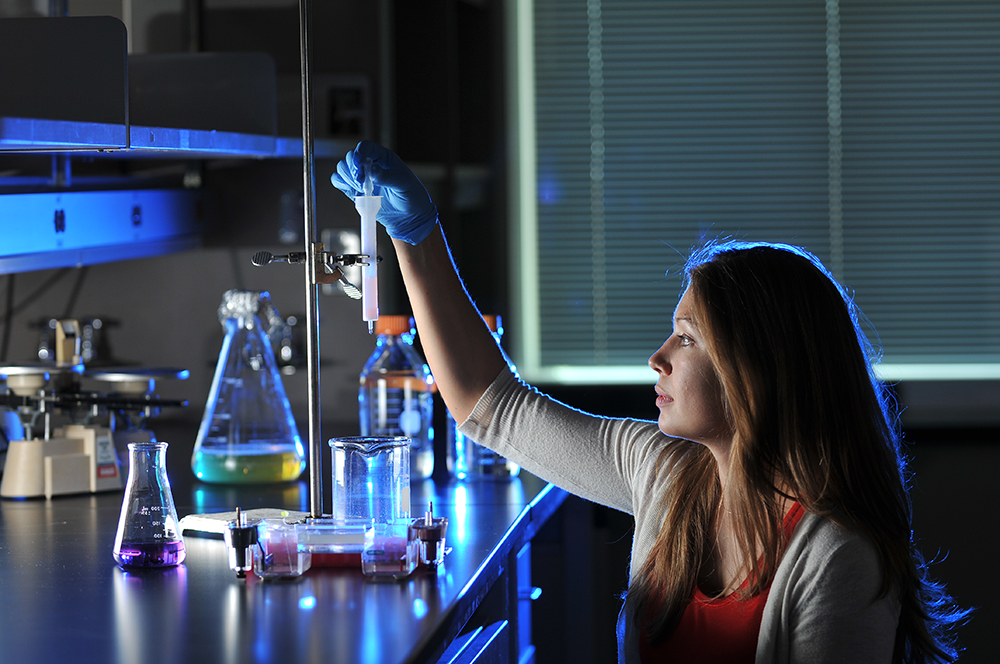
Who says you have to leave school once you earn your PharmD degree? Academia is another possibility for pharmacists to grow their careers — and those of a new generation of pharmacists.
Read about how faculty members make a difference in clinical settings.
Alumni Career Spotlights
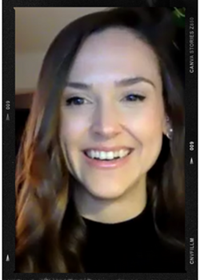 Chelsea Sax, PharmD, '18
Chelsea Sax, PharmD, '18
Express Scripts
Managed Care Pharmacist
My official title is Product Strategy, Senior Advisor and today I serve as the lead consultant for all new generic product launches. Specifically, I work in supply chain. I'm in the pharmacy benefit management industry and really our focus at Express Scripts is on making healthcare more affordable, accessible, and simpler for payers, providers and, above all, our patients; with our main focus being lowering prescription costs for payers and patients.
How Did CU Help You Get Here?
I think CU does a really good job practicing the different types of industries that you can go into. I did have a brief stint in our public health course where we were introduced to the PBM, the healthcare industry, and understanding all the different healthcare platforms, and the different peer groups like Medicare and Medicaid. That was a big help in at least giving me that brief introduction.
Pro Tips for Students
- Get involved in joining different organizations such as the Academy of Managed Care Pharmacy (AMCP), which I think is an excellent insight into what goes on in the managed care world even beyond school.
- Explore and look outside of your typical retail or hospital internships.
- Don’t just consider clinical residency after completing pharmacy school. Consider other residencies whether that be through a health plan or a hospital system.
Check out the complete interview with Chelsea here.
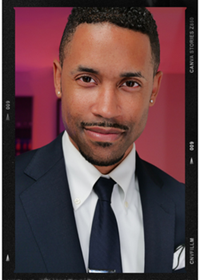 James Delk, PharmD, ‘12
James Delk, PharmD, ‘12
Kaiser Permanente
Outpatient Pharmacist
James Delk’s official title is Outpatient Pharmacist for Kaiser Permanente. As such, he consults with medical professionals, instructs patients on how to dispense and take their medications properly, and fill prescriptions orders. He generally works with emergency discharges, oncology, and general pharmaceutic medication. That’s his day job.
Digital Healthcare Advocate
When Dr. Delk is not working as an Outpatient Pharmacist, you’ll likely find him in his home studio recording or editing a new video for his Youtube channel The Fresh Pharmacist. His fast-paced, tightly edited videos attract an audience seeking medical information in an entertaining package. As The Fresh Pharmacist’s viewing audience has grown, now at more than 20,000 subscribers, so have the opportunities to partner with a number of health-related businesses that want to get their product or message in front of his young and digital-savvy audience.
Read More About The Fresh Pharmacist Here.
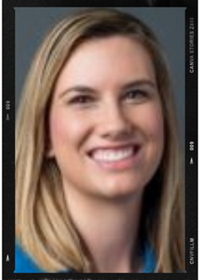
Bayli Larson, PharmD, ‘18
American Society of Health-System Pharmacists (ASHP)
Strategic Initiatives Associate
The ASHP is an association that represents pharmacists, pharmacy students and pharmacy technicians that practice in acute and ambulatory care settings. They have about 58,000 members. As the strategic initiatives associate, I help manage and lead a variety of collaborative, cross-organizational strategic activities in the areas of product, program, and business development. I'm also helping with special projects and initiatives, external stakeholder engagement, and some operational work, among other things.
What Do You Enjoy the Most About this Position?
I love a lot of things about it. I really love the opportunity to advocate for pharmacists and student pharmacists and technicians. This can look like helping to draft policy or participate in Policy Week. I love that this job took me to a new location. I love that I get to help with a wide variety of meetings, summits and events. I also like the opportunity to help develop some Continuing Education (CE) offerings.
Pro Tips for Students
- Look into doing an APPE rotation either at your state or national association. ASHP takes summer interns and APPE students, and I did some elective ones. I think elective rotations can really be a great opportunity.
- Keep up to date on what you can with the news. I think even if you can listen to a little NPR every day or wherever you want to get your news, it will serve you well to stay informed on issues going on for conversations either in class or at your rotations, or even at home.
- And remember, no matter what you decide, it's going to be okay. There's not one right and wrong path if you have a good attitude. We're all pharmacists and I think it's important to remember that.
Check out the complete interview with Bayli here.
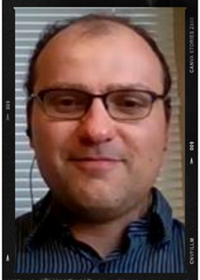
Dmitriy Gekker, PharmD '20
STAQ Pharma
Production Pharmacist
We are a startup, so each day is very different. We're kind of a hybrid between your regular compounding pharmacy and a manufacturer. Essentially, I formulate drugs. I come up with new drug products and I do a lot of research and writing and just have a very interesting time doing it. It's a great career path. My favorite part has definitely been the drug development portion of it. It keeps you on your toes all the time. It's just something that I never thought I would actually be doing, but it's extremely fun and extremely rewarding.
What’s been your biggest takeaway from this position?
It’s been realizing there's so much out there in pharmacy that we might not even know about. It helps to keep your mind open and to give yourself as many opportunities as you possibly can. It really helps to not close any doors, to always get out of your comfort zone, to always just have willingness to see what else is out there, and to always be open to these sorts of things because it can lead you to some very surprising and rewarding places.
Check out the complete interview with Dmitriy here.
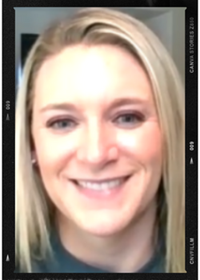 Felecia Hart, PharmD, ‘15
Felecia Hart, PharmD, ‘15
Novartis
Neurology Pharmacist
I did the two-year Neurology Fellowship at CU which prepared me for a Neurology Pharmacist position embedded into an outpatient neurology clinic in Billings, Montana. I had patients across the board. Whether that was dealing with immune mediated neuropathy, MS or epilepsy, or a migraine. Basically, when I was there, I was just like any other provider. I had patients that were on 50 or more supplements that we would have to sit and go through and determine whether those were safe to take after they had a stroke. They treated pharmacist just like any other provider, so I really, really enjoyed that.
Medical Science Liaison
Of course, that all led me to this career now that I have as a medical science liaison, which this is much different. I don't get to see patients anymore. However, I get to touch many more patients than I did where I was before, because now the appointments I have are with neurologists, physicians, assistants, and nurse practitioners in the neurology space. I get to teach them about MS medications and the newest data coming out from the American Academy of Neurology. So, instead of being at one clinic and seeing those patients, I get to touch patients at clinics all over the state of Colorado.
Check out the complete interview with Felicia here.
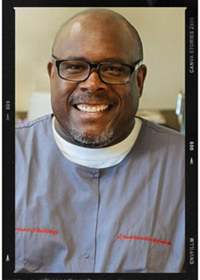
Corey Craig, PharmD,’18
New York-Presbyterian Hospital
Nuclear Pharmacist
At this particular setting, we order medication doses from one of the companies outside of the city and they're calibrated for certain times of day based on when the patient comes in. When I come in the morning, those cases are ready to go; the patients start arriving. My job is to make sure the patient's dose matches the drug written. I have to calibrate the dose to be a certain amount of radiation based on the time the patient arrives. I have to make sure they're getting just the right amount of radiation for the scan that’s about to happen. The drugs are specific to the organ they want to image and it's already labeled with radiation when I receive it. My day is calibrating the doses closer to when the patient arrives because the doses expire. They have a half-life of six hours, so you have to be precise on what the patient actually receives.
Pro Tips for Students
- Don’t be afraid to ask questions. You don't know what you don't know.
- Make friends in your class. Find somebody you can study with and help each other. There was a lot of camaraderie between my classmates. People can be a good resource if you let them be.
What is a Doctor of Pharmacy (PharmD)?
A Doctor of Pharmacy (PharmD) is a professional doctorate degree in pharmacy.
Just like physicians who attend four years of medical school, pharmacists attend four years of pharmacy school before becoming licensed healthcare professionals. The PharmD program prepares individuals for a variety of careers within the pharmacy profession.
Our school consistently ranks in the top 15 percent of pharmacy programs in the country. We’re fully accredited by the Accreditation Council for Pharmacy Education (ACPE) and have more than a century of experience.
Don’t take our word for it. Hear from Thanh Thai on why she chose our pharmacy school.

